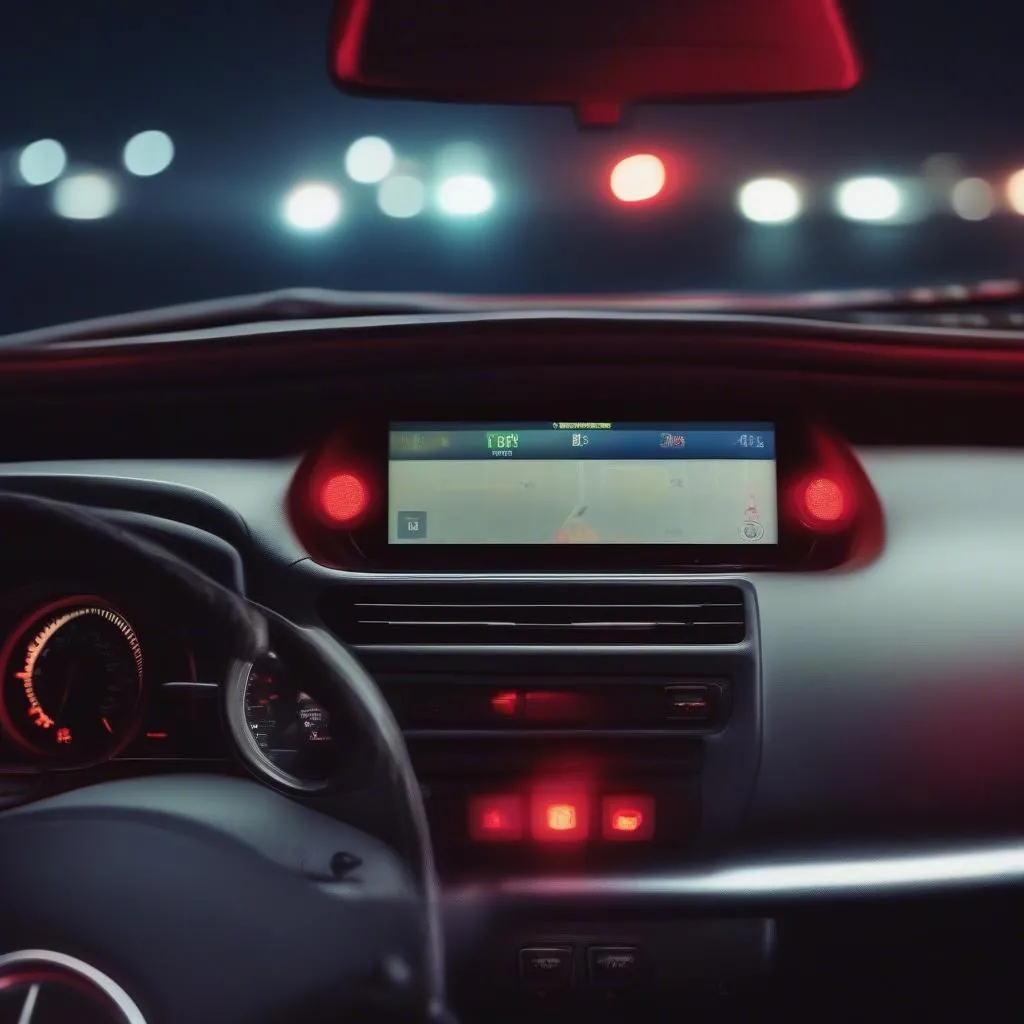When your Toyota Prius throws up a brake warning light, it’s natural to feel a pang of anxiety. This is a crucial safety system, after all, and knowing what the light means and how to address it is essential. In this guide, we’ll dive into the various Toyota Prius brake warning lights, explore their potential causes, and outline the necessary steps to resolve the issue.
Common Brake Warning Lights and Their Meanings
The specific warning lights that appear on your Toyota Prius’s dashboard can provide valuable clues about the underlying problem. Here’s a breakdown of the most common brake warning lights and what they signify:
1. Brake Warning Light (Red)
This is the primary brake warning light, often depicted as a circle with an exclamation mark within it. When this light illuminates, it signifies a critical issue with the braking system. This could include:
- Low Brake Fluid: Insufficient brake fluid can lead to a compromised braking system and should be addressed immediately.
- Brake Pad/Shoe Wear: Worn-out brake pads or shoes can affect braking performance, causing the light to activate.
- Faulty Brake System Sensors: Issues with sensors that monitor brake fluid levels or other crucial components can trigger this warning.
- Electrical Malfunctions: A malfunctioning electrical system within the brake system can also activate the brake warning light.
Important: If the brake warning light remains illuminated, it’s crucial to avoid driving the vehicle and contact a certified mechanic for a prompt inspection and diagnosis.
2. ABS Warning Light (Yellow)
The ABS warning light, often represented by a symbol of a car with wavy lines behind it, indicates a problem with the Anti-lock Braking System (ABS).
- ABS Sensor Malfunction: A faulty ABS sensor can disrupt the ABS system’s ability to monitor wheel speed.
- ABS Module Failure: The ABS module, the control unit for the ABS system, can experience a malfunction.
- Wiring Issues: Damaged or faulty wiring connected to the ABS system can interrupt signals and cause the warning light to activate.
Note: While driving with a faulty ABS system isn’t necessarily unsafe, it can compromise braking performance in certain situations.
3. Electronic Parking Brake (EPB) Warning Light (Yellow)
The EPB warning light, usually depicted as a handbrake symbol, signals a problem with the electronic parking brake system. This could include:
- EPB Malfunction: The EPB actuator or control unit might have malfunctioned, preventing the system from engaging or releasing properly.
- Low Battery: A low battery charge can affect the EPB’s functionality, causing the warning light to illuminate.
- EPB Pad Wear: Worn-out EPB pads can trigger the warning light, indicating the need for replacement.
Recommendation: If the EPB warning light remains active, it’s recommended to consult a qualified mechanic for a thorough inspection.
Troubleshooting Toyota Prius Brake Warning Lights
While a professional inspection is crucial, understanding the common causes of brake warning lights can help you identify the problem and potentially take initial steps.
Here’s what you can do if you encounter a brake warning light:
-
Check Brake Fluid: Ensure the brake fluid level is within the recommended range. If it’s low, add brake fluid of the correct type. Be cautious not to overfill the reservoir.
-
Inspect Brake Pads/Shoes: Visually check the brake pads or shoes for excessive wear or damage. If they’re worn down, they need to be replaced.
-
Check for Leaks: Look for any signs of leaks in the brake lines or calipers. If you spot any leaks, address them immediately.
-
Inspect Wiring: Examine the wiring connected to brake system components for any damage or loose connections.
-
Reset the Warning Light (If Applicable): Some warning lights can be reset after addressing the issue. Refer to your owner’s manual for instructions.
Common Causes of Brake Warning Lights in Toyota Priuses
While we’ve covered the general principles, here are some specific issues that can lead to brake warning lights in Toyota Prius models:
1. Brake Fluid Leak: Toyota Priuses are known to experience brake fluid leaks due to aging components or a faulty brake fluid reservoir.
2. ABS Sensor Failure: Priuses, particularly older models, can suffer from ABS sensor failures, especially those located on the front wheels.
3. Electronic Parking Brake (EPB) Malfunction: The EPB system in Priuses can sometimes experience malfunctions, leading to warning light activation and potential brake problems.
4. Brake Pad/Shoe Wear: Like all vehicles, Toyota Priuses require regular brake pad and shoe replacement.
5. Electrical Issues: Electrical problems within the brake system are also possible in Toyota Priuses.
Expert Insight
“Addressing brake warning lights promptly is critical for your safety and the vehicle’s overall health,” states Mark Johnson, a seasoned automotive technician with 20 years of experience. “Don’t ignore these warnings, as they can indicate a potentially serious issue that can escalate rapidly. If you experience a brake warning light, it’s best to err on the side of caution and seek immediate professional assistance.”
FAQ
Here are some commonly asked questions about Toyota Prius brake warning lights:
1. What should I do if my Toyota Prius has a brake warning light and I’m on the road?
If the brake warning light comes on, it’s recommended to find a safe place to pull over. Avoid sudden braking or accelerating, and contact a mechanic for immediate assistance.
2. Can I still drive with a brake warning light on?
It’s generally not advisable to drive with a brake warning light illuminated. It indicates a potential problem with the braking system, which can affect braking performance and safety.
3. What does a flashing brake warning light mean?
A flashing brake warning light often signals a more critical issue with the braking system. This could indicate brake system failure or other serious problems.
4. How much does it cost to repair a brake warning light issue in a Toyota Prius?
The cost of repairing a brake warning light can vary significantly depending on the cause and severity of the problem. It’s best to consult a qualified mechanic for an accurate diagnosis and cost estimate.
5. Can I reset a brake warning light myself?
While some brake warning lights can be reset after addressing the issue, it’s generally recommended to consult your owner’s manual or a qualified mechanic for instructions.
Conclusion
Toyota Prius brake warning lights serve as crucial indicators of potential issues within the braking system. Addressing these warnings promptly can help prevent more serious problems, ensure safe driving, and preserve the longevity of your vehicle. If you experience a brake warning light, it’s best to consult a qualified mechanic for an accurate diagnosis and repair.


